US News
Millennial nostalgia brings '80s, '90s back into trend
Trends stemming from the '80s and '90s have brought the past back into vogue in recent years. Through fashion, movies, television and even commercials, this so-called "millennial nostalgia" is something easily felt, but difficult to explain.
Remakes and sequels from decades ago spawned the top box office successes of 2022. The top five grossing domestic movies of the year were all previously established intellectual property – with "Top Gun: Maverick," a sequel to the 1986 action drama film, "Top Gun," taking the lead, according to Box Office Mojo by IMDb Pro.

Ryan Lizardi, associate professor at SUNY Polytechnic Institute, and author of the book Nostalgic Generations and Media: Perception of Time and Available Meaning, told ABC News' "Start Here" podcast that the media itself was the clear catalyst for this trend.
"So a lot of this research for me stems from [when] my daughter was born in 2015, and noticing the ways in which a lot of the media that she was being asked to consume, was similar to the stuff that I had in my own childhood," he said. "It felt like it was being marketed toward me to sort of introduce her to these same things."
Lizardi argued the Entertainment industry encouraged a perPetual attachment to adolescence for the now-grown '80s and '90s kids, hoping to make connections to past franchises and hook new generations. He called this practice creating "eternal brands." These reboots target millennials especially – a generation often cited as being particularly prone to nostalgic feelings – and one that is typically defined as those born from 1981 to 1996, Lizardi said.

MORE: Tom Cruise thanks ‘Top Gun: Maverick’ fans while skydiving, appears in 'Mission: Impossible' sneak peek
Lizardi said while nostalgia itself is not inherently bad and can be used to learn from the past or be adaptive for the future, he questioned the media's intention, noting whether that was the motivation behind recent reboots and sequels.
"So do they want us to look at the past as something we can learn from or do they want us to look at the past as something that we can obsess over?" he asked.
Dr. Krystine Batcho, a professor of psychology at Lemoyne College in Syracuse, New York, and a licensed psychologist and a nostalgia researcher, argued it was not the media's influence causing a recent nostalgia craze, but rather traumatic events that led to this phenomenon in the millennial generation. These traumas then shaped how millennials deal with stress as adults, she said.
MORE: 'Emily in Paris' season 3: An inside look at the fashion and how to get the looks

Batcho gave an example that in early 1985, the nonprofit National Child Safety Council began a nationwide program called the Missing Children Milk Carton Program – and placed photos of missing children on milk cartons. Although this campaign brought attention to the idea of "stranger danger," it was ended after the establishment of the Amber Alert program.
At the time, pediatrician Benjamin Spock criticized the practice and argued the cartoons terrified small children since they believed they, too, might be abducted.
"Imagine that you're sitting at your breakfast table reaching for milk to put on your cereal and you see this child who's missing, '' Batcho told "Start Here." "Child psychologists for the first time were encountering patients, who were quite young, who were having anxiety disorders – nightmares about being abducted."
Batcho said her research over the last several decades suggests nostalgic feelings help counteract time periods of great stress, anxiety, loneliness, even depression.
Regardless of whether the cause of recent "millennial nostalgia" is an oversaturation of '90s content in media or a coping mechanism for stress, both Lizardi and Batcho agreed that nostalgia could be used as inspiration to replicate happy moments from the past to make a more fulfilled future if used in Healthy doses.
This report is featured on the Thursday Dec. 29 episode of "Start Here," ABC News' daily news podcast.
-

 US News1h ago
US News1h agoTensions Rise at Ole Miss as Counter-Protesters Taunt Palestine Supporters With Star-Spangled Banner
-
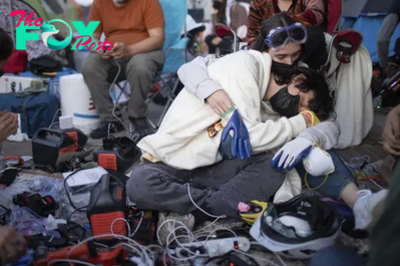
 US News1h ago
US News1h agoPolice Officer Fired Gun While Clearing Protesters From Columbia Building, Prosecutors Say
-
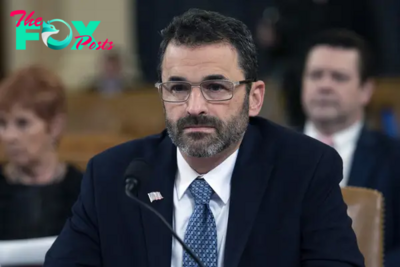
 US News8h ago
US News8h agoIRS Acts to Address Wide Disparity in Audit Rates Between Black Taxpayers and Other Filers
-
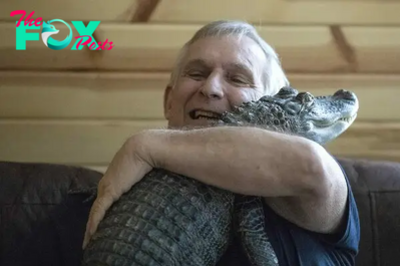
 US News8h ago
US News8h agoViral Emotional Support Alligator Has Gone Missing, Owner Says
-
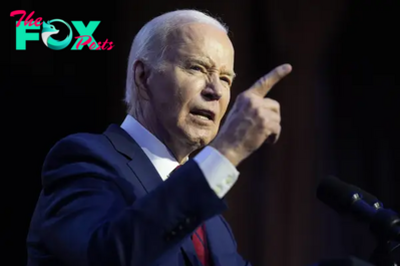
 US News14h ago
US News14h agoBiden Calls Japan and India ‘Xenophobic’ Nations That Do Not Welcome Immigrants
-
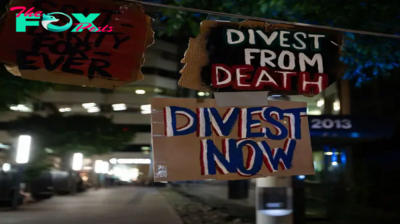
 US News14h ago
US News14h agoProtesters Are Calling on Universities to Divest from Israel. Here’s What That Means
-
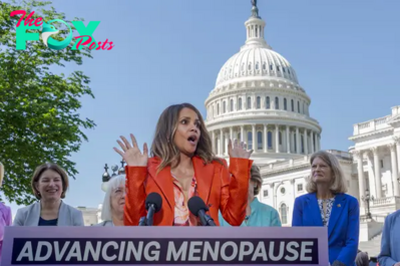
 US News21h ago
US News21h ago‘I’m in Menopause!’ Halle Berry Seeks to End a Stigma and Win Funding
-
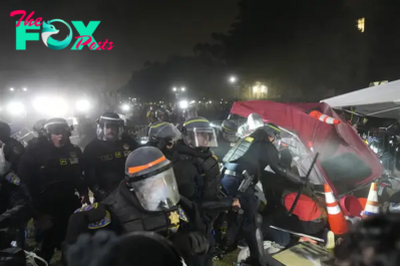
 US News21h ago
US News21h agoPolice Begin Dismantling Pro-Palestinian Demonstrators’ Encampment at UCLA



























